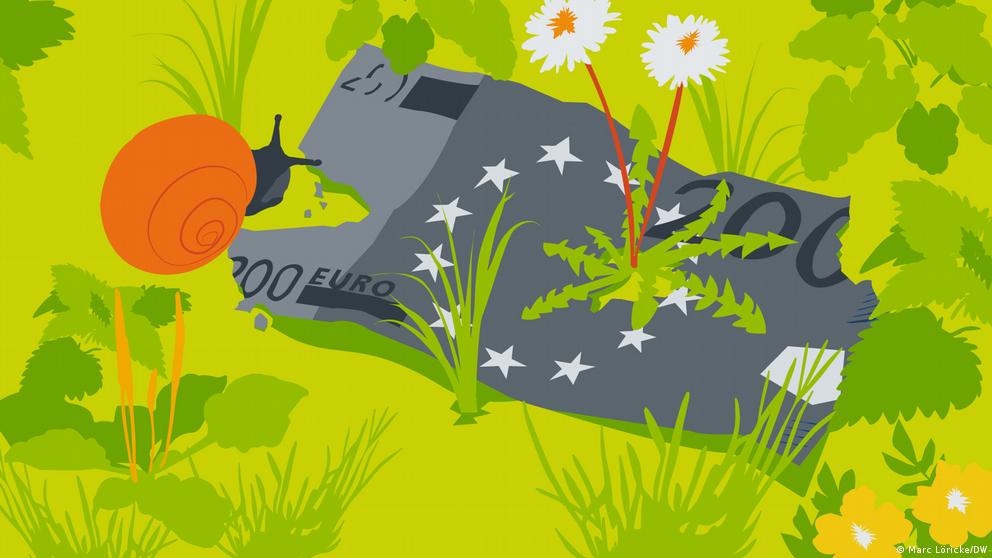Climate protection
Why nothing is possible without the economy (anyway)
At the beginning
After more than a month of break due to lack of motivation, I'm back with a new post and the plan to continue this in the next weeks, at least every Sunday. I leave out my introduction and pin it from now on in a corresponding article in my profile.
So, a blessed Easter Sunday, good luck looking for eggs and hopefully fun reading!
Introduction
Fifteen years old, is at least a little interested in politics and likes to discuss. I guess for some people the image of a boy who skips school on Fridays to join FfF, who wears t-shirts with big, broad slogans and who has a rainbow flag hanging in his nursery comes up pretty quickly. Admittedly, maybe this is a bit exaggerated, but for many people it reflects my generation. Left-wing, green and unrealistic, but above all for the climate, whatever the cost. Past mere reason, asleep in economics class, but all the more for the introduction of a (partially) planned economy to save the climate. After all, what use is a liberal economy if the world is going to end?
Admittedly, on a FfF demo I was also already. But that was to profess solidarity with Ukraine and already there the exaggerated slogans disturbed me. Partly completely polemic, partly completely absurd, with demands that would push our economy over newly created cliffs.
Meanwhile one hears unrealistic climate demands also in social media more and more often. Because even if they may be right in essence and want the right thing, their problem remains the same. Instead of recognizing that climate protection and the economy have to go hand in hand, they confront, antagonize and fight each other.
The problem
Some of you may have read my article on the subject of morals on the stock exchange. Among other things, I dealt with mineral oil companies and pointed out the mandatory change to climate neutrality, companies must adapt to the spirit of the times in order to continue to write green figures, because otherwise no one will buy more. I compared this with the growing organic offer in supermarkets, which comes to stand for a simple reason, people buy. I received a comment under the post describing climate protection as a luxury problem, and in a way he is right and hits a central point, about which in my eyes is spoken far too little.
Climate protection is expensive, very even and for many people therefore simply not affordable.
The word luxury problem is not meant to suggest that climate is not a real problem. Much more it should clarify how difficult it can be to pay attention to the climate. The regional organic lemon is expensive, a hydrogen or electric car is even more so. Taking the train to the grandparents is out of the question, when the price for the same distance by train is easily three times as much as by car. And what does the energy-efficient renovation of the already too small house on the outskirts of the city cost? Definitely too much, especially for a problem that seems so far away to so many.
The question
The questions we will have to deal with in the coming years are endless and they will become more and more. But one question remains and will probably continue to do so in the future, the question of financial viability, feasibility and, above all, economic viability. Because if a technology is not economical it is bad, costs too much or does not address the problem properly. And what costs a lot, but should be implemented by everyone, even those who cannot afford it, costs the state money. That's how a social market economy works. And I do not want to criticize the principle of our social state, quite the opposite, especially with such conversions and problems it needs him urgently. But I would like to make aware that such costs in the end someone must bear.
So what is the solution?
Well, there are actually two, maybe three if you look at it more closely. We massively subsidize technology that is inefficient and not even necessarily sustainable, as we have done in the past with electric cars, we leave the question of feasibility and implementation to people who know about it, trust the market as it has worked wonderfully in the past, or we leave everything as it was. Personally, I would prefer option two. Admittedly, it may not be quite that easy. And the market will still be based on supply and demand, not on global warming. That's why we need Subsidies of the state, for example in the form of tax breaks, which provide incentives to become climate-neutral, not bans. Because these have the opposite effect. Instead of promoting climate protection and involving the market in the process, we are using planned economic instruments and perhaps even banning the technology. could.
Conclusion
We must become climate neutral, that is out of the question. The crucial thing is no longer to find the goal, because we have already done that. The crucial thing is to pave the way to get there and to address the question of whether we want to do this with or against the market. Because in my eyes, it is the task of our state to lead the way to the goal, to pave the way with support and subsidies, but not to stand at the starting line with the set of rules and exclude participants who might have been the first to arrive. Because who wins is ultimately decided by consumers, market economy principles and not the state or politicians who have no idea about the technology itself.
#klimawandel
#wirtschaft
#klimaschutz













